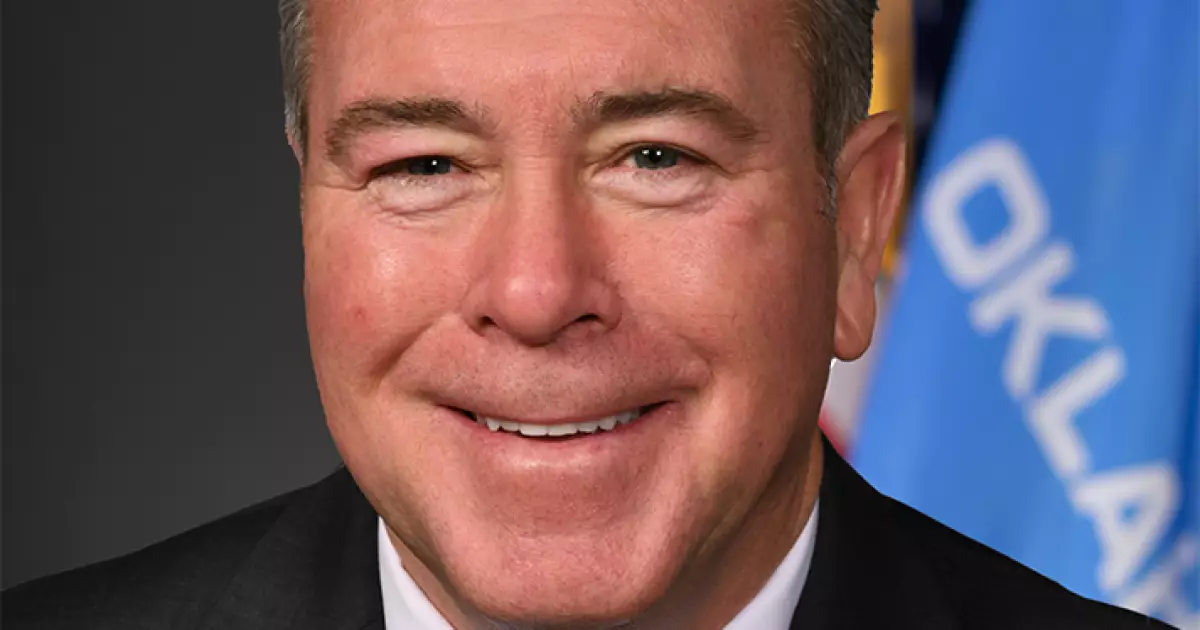Political disputes are often fueled by power struggles, but the escalating conflict between Oklahoma’s attorney general and state treasurer stands out as an alarming example of how governance can foster discord. The feud, revolving around a contentious anti-environmental law, highlights more than just a disagreement over policy; it exposes deep-seated issues regarding constitutional authority and the distribution of power within the state government. State Treasurer Todd Russ’s accusation that Attorney General Gentner Drummond has “crossed constitutional lanes” is not merely rhetoric; it signifies a critical clash between the executive and financial functions of the government.
With Drummond’s office aiming to centralize power and bypass the traditional stewardship roles that treasurers traditionally have, the concern is not unwarranted. Russ’s framing of Drummond’s actions as a threat to Oklahoma’s sovereignty is a striking indictment of the attorney general’s overreach. As an observer from a center-right vantage, one must ask: Is this boldness a necessary assertion of authority, or a dangerous precedent that could dilute the powers of duly elected officials within the state?
A Question of Constitutionality
The conflict spirals deeper when we consider the actions taken by Drummond in defense of the Oklahoma Energy Discrimination Elimination Act of 2022. His insistence on protecting the oil and gas industry from perceived attacks by financial institutions is vehement and, from a certain perspective, commendable. Nonetheless, it opens a Pandora’s box of questions about the balance between promoting local industries and ensuring adherence to broader market principles. Is Drummond’s defense a justified safeguarding of Oklahoma’s interests against ‘radical leftist agendas,’ or is it perhaps an overreactive stance that alienates investment sources vital for economic growth?
The implications of these legal maneuvers have the potential to shape Oklahoma’s economic landscape in the long term. When financial firms like BlackRock are blacklisted due to their socially responsible investment strategies, one has to question the viability of a law that seems to prioritize state-level ideology over financial pragmatism. By targeting companies that endorse environmental, social, and governance (ESG) criteria, the law may protect specific sectors but at what cost to the broader economic health of Oklahoma?
Political Ambitions Amidst Chaos
Drummond’s ambitions for the governor’s seat infuse the rancor with heightened stakes. As he navigates the tumultuous waters of political conflict, one can’t ignore the potential for hyperpartisan rhetoric to overshadow genuine governance. Such ambitions can skew decision-making; they might transform vital state discussions into campaigns for personal gain rather than authentic debates over the welfare of the citizens.
Furthermore, Drummond’s alleged close ties with BlackRock complicate the narrative of his opposition to Russ. The vehement denials by Drummond’s spokesperson only thicken the plot. The insinuations regarding favoritism raise a red flag: how much of this debate revolves around ideals and how much is rooted in self-interest? Higher transparency in these dealings is crucial for maintaining public trust, especially when political figures are perceived to be at odds not just with one another, but also with the principles they profess to uphold.
The Role of Legislative Responsibility
The unsuccessful bill to transfer enforcement of the Energy Discrimination Elimination Act to Drummond from Russ must also be scrutinized. Russ’s claim that such a move would blur the lines between political oversight and financial judgment speaks to a concern that resonates with many observers of government. Legislation should not create an environment where fiduciary expertise is compromised for political posturing.
What’s more troubling is the underlying message that emerges from this episode: when faced with urgent decisions, do political motivations outweigh the imperative to act in accordance with the best financial practices for Oklahoma’s fiscal health? This episode serves as both a cautionary tale and a rallying cry for greater accountability among legislators, reminding us that governance, even at the state level, must be anchored in principles of transparency, accountability, and most importantly, a commitment to the electorate that transcends party lines.

